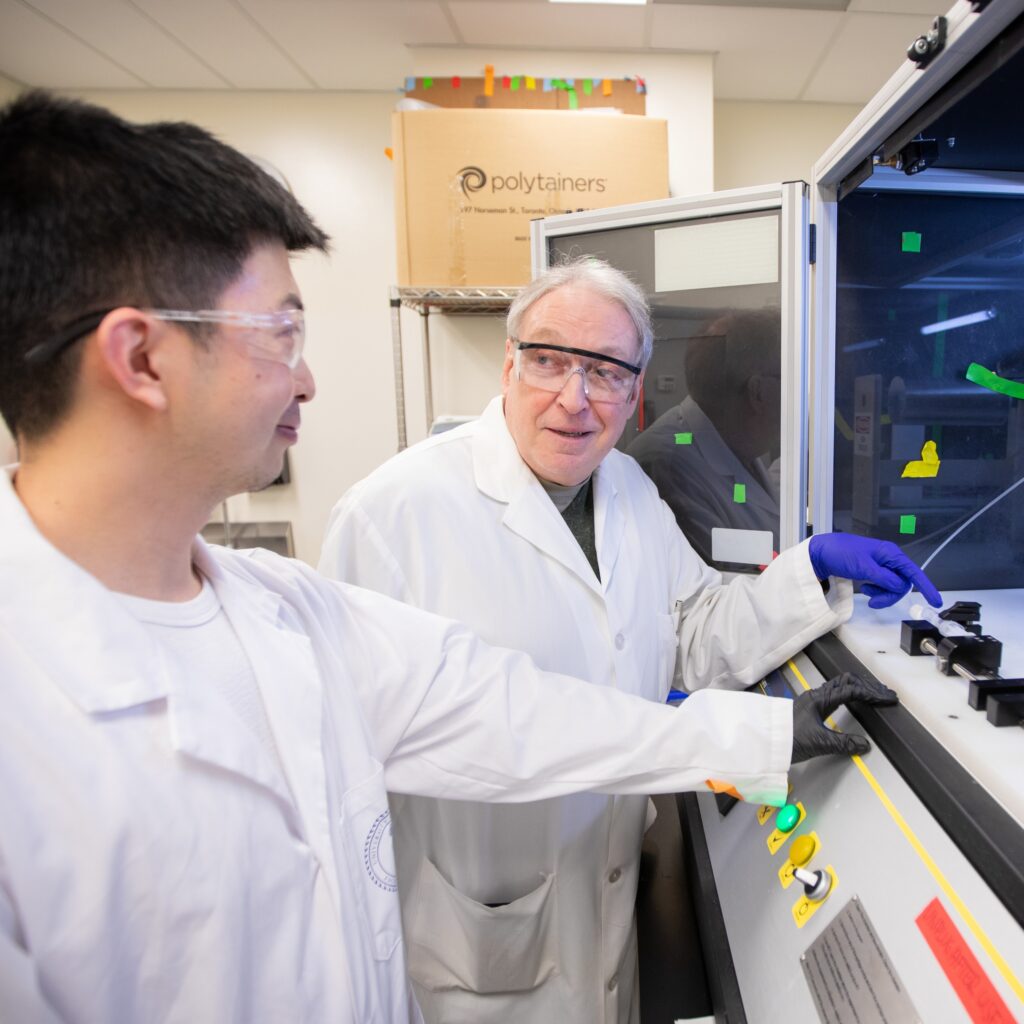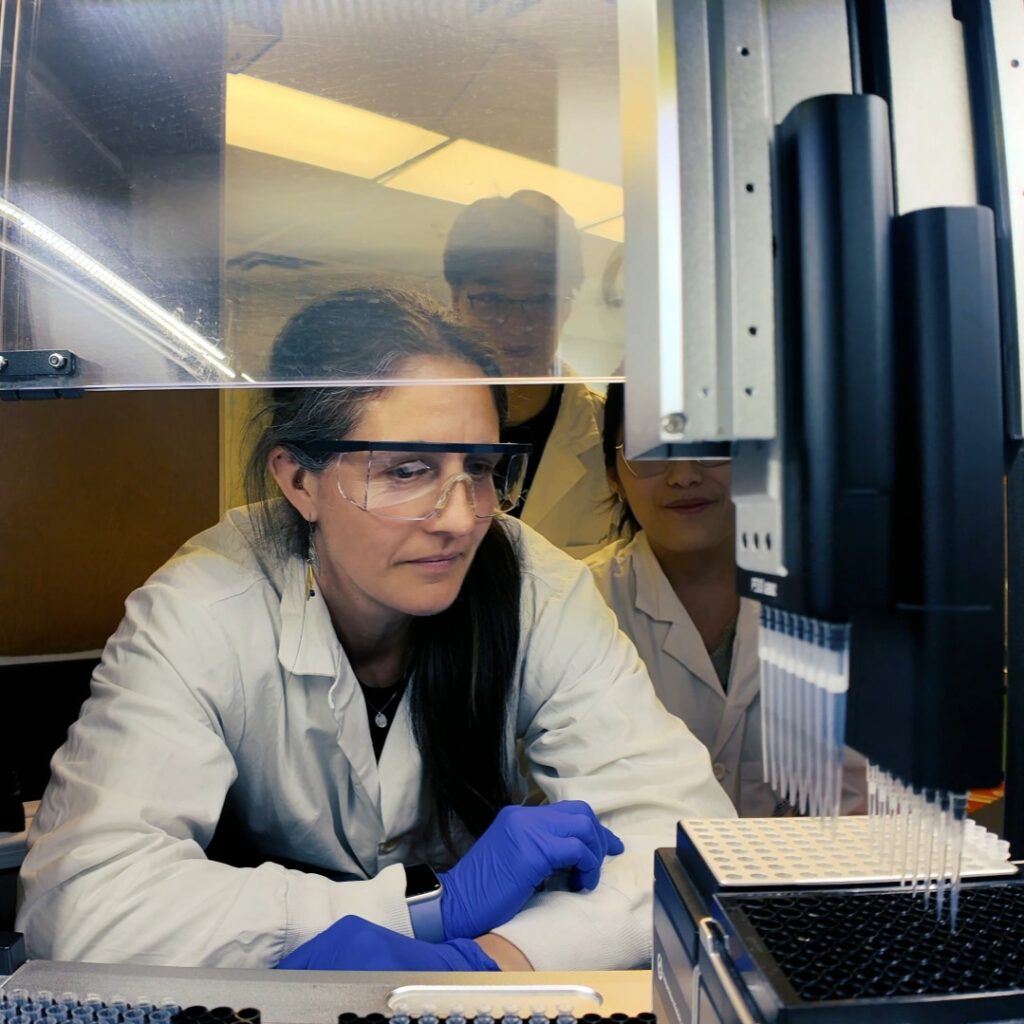Cell and Tissue Engineering
Cell and tissue engineering has the potential to change how we think about disease and aging is happening at BME. Regenerative medicine uses stem cells and biomaterials to repair, replace or regenerate damaged tissue, organ structures and function.
Quick Navigation
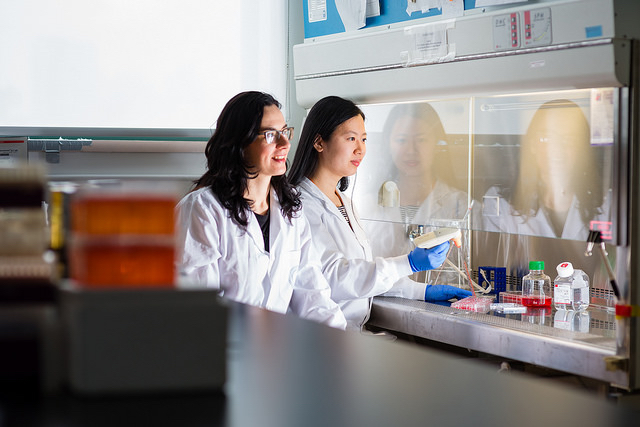
Biomaterials
Growing heart and liver tissue for safer drug testing and more
Professor Milica Radisic’s team works on growing human tissue in artificial environments as platforms for developing and testing new drugs, and with the potential to one day, repair or replace damaged organs.
Their creations have included Biowire™, a method of growing heart cells around a silk suture, “Hook-in-Tissue,” a biocompatible scaffold that allows sheets of beating heart cells to snap together like Velcro®, and AngioChip, a system built in a normal cell culture dish that allows lab-grown heart and liver tissue to function and interact like the real thing.
Today, the team is already working on commercializing these technologies through TARA Biosystems Inc., a spinoff company co-founded by Radisic.
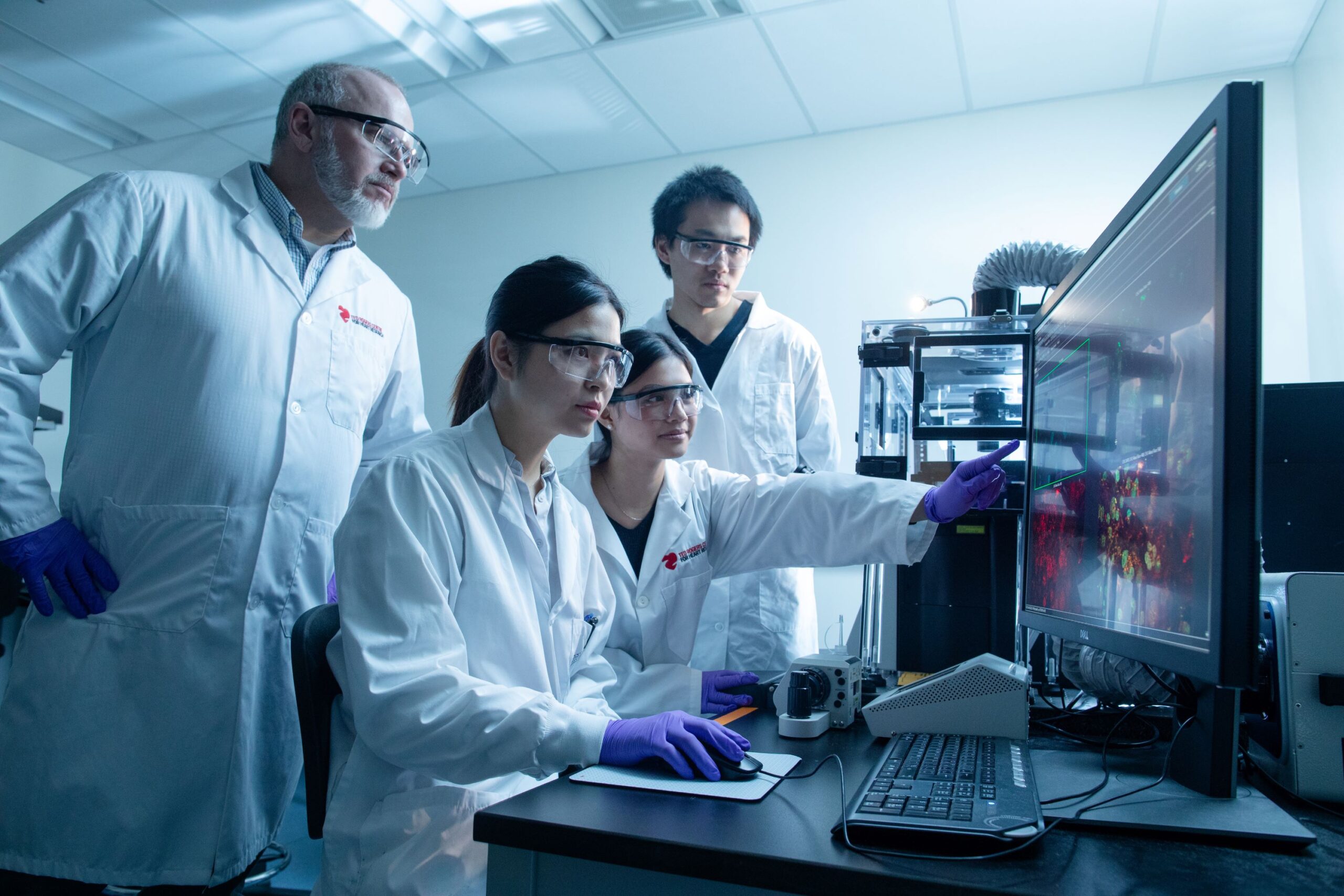
Tissue Engineering
Advancing treatments for heart failure
Professor Craig Simmons leads an interdisciplinary team of eight researchers and their students from U of T Engineering, Medicine and Dentistry to advance discoveries and accelerate new treatments for heart failure and cardiovascular disease.
As the scientific director of the Translational Biology & Engineering Program (TBEP), the U of T arm of the Ted Rogers Centre for Heart Research (TRCHR), he brings together experts in engineering and medicine to uncover mechanisms of disease, develop new diagnostic tests for early detection, and create therapeutic strategies using molecules, cells and biomaterials to regenerate heart tissues.
The goal: improve the lives of one million Canadians with heart failure and reduce the estimated $3-billion cost to our health-care system.
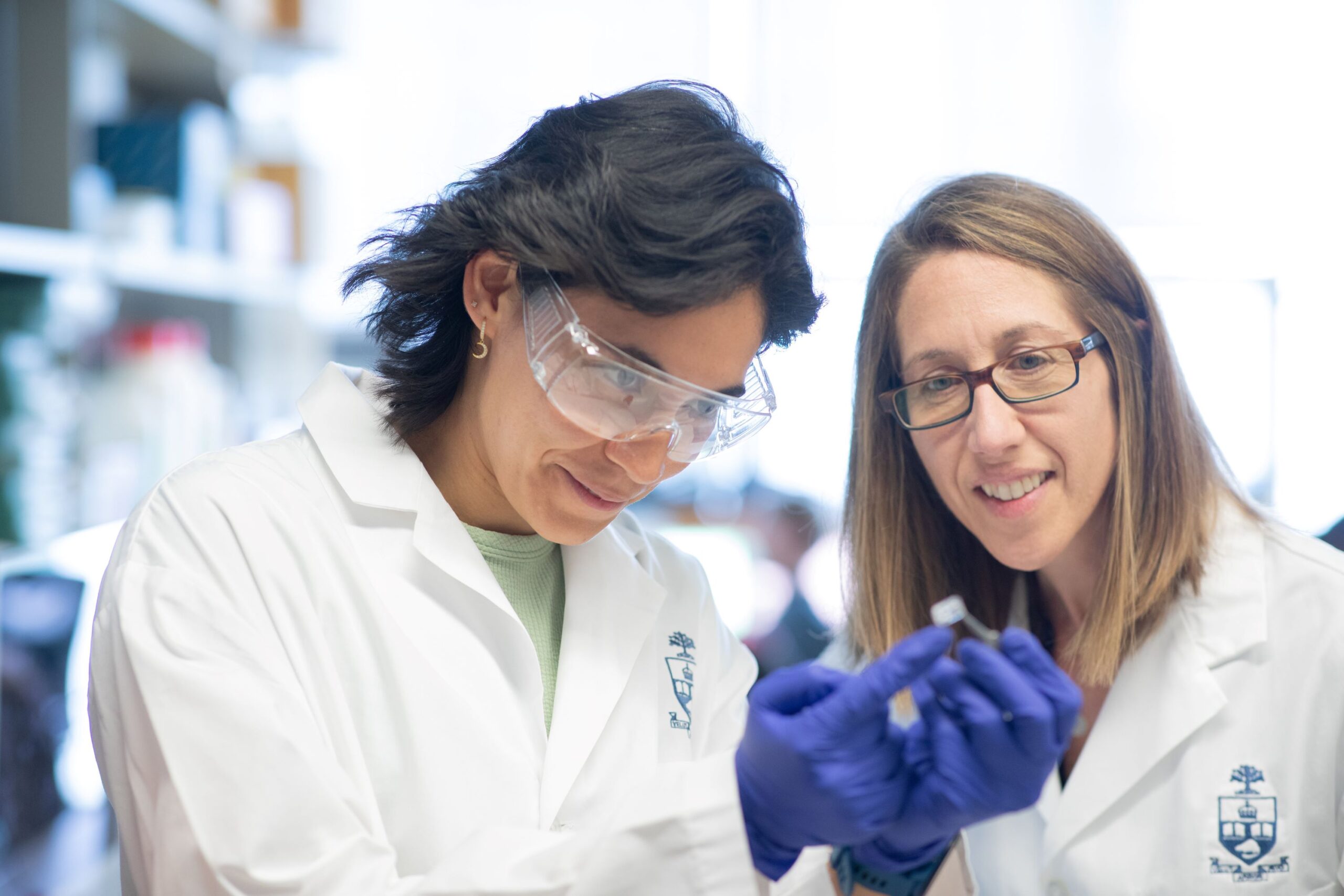
Regenerative Medicine
Restoring muscle function through regenerative medicine
Professor Penney Gilbert is harnessing the potential of muscle stem cells to advance therapies for muscle repair and regeneration. By investigating how these cells function in healthy and diseased states, the lab is driving innovations to restore skeletal muscle health.
Using lab-grown, miniature human muscle models, the Gilbert lab replicates muscle repair processes in a controlled setting. These "muscles in a dish" enable the study of conditions like aging, Duchenne muscular dystrophy, and ICU-acquired weakness, providing a platform to test new treatments and explore the regenerative potential of muscle stem cells.
Their work brings new hope for therapies aimed at restoring muscle function and improving quality of life for those affected by muscle disorders.
Read more news about cell & tissue engineering
Researchers highlight “regenerative healing” as a holistic framework for future health innovations
A new paper by Professors Michael V. Sefton (University of Toronto) and Malcolm King and Alexandra King (University of Saskatchewan) introduces the term “regenerative healing” as a complementary, more holistic concept to regenerative medicine. The authors suggest the framework may better reflect Indigenous perspectives on health and wellness and support more inclusive conversations about emerging biomedical therapies.
U of T researchers show that fractal geometry can help kidney cells grow in a more mature form
Researchers at the Institute of Biomedical Engineering at the University of Toronto have developed a new way to grow specialized kidney cells in the lab so that they look and behave more like they do in the body.
University of Toronto Professor Paul Santerre elected fellow of the National Academy of Inventors
Professor Paul Santerre has been elected as a Fellow of the National Academy of Inventors (NAI), the highest professional distinction awarded to academic inventors. This honour recognizes individuals whose patented innovations have made a significant and lasting impact on quality of life, economic development, and the advancement of society.
AmacaThera enters global licensing agreement with Pacira BioSciences for non-opioid post-surgical pain therapy
AmacaThera Inc. (co-founded by Prof. Molly Shoichet), a biotechnology company focused on hydrogel-based drug delivery systems, has entered into an exclusive worldwide licensing agreement with Pacira BioSciences, Inc. for the development and commercialization of AMT-143, an investigational long-acting non-opioid anesthetic intended for post-operative pain management.


